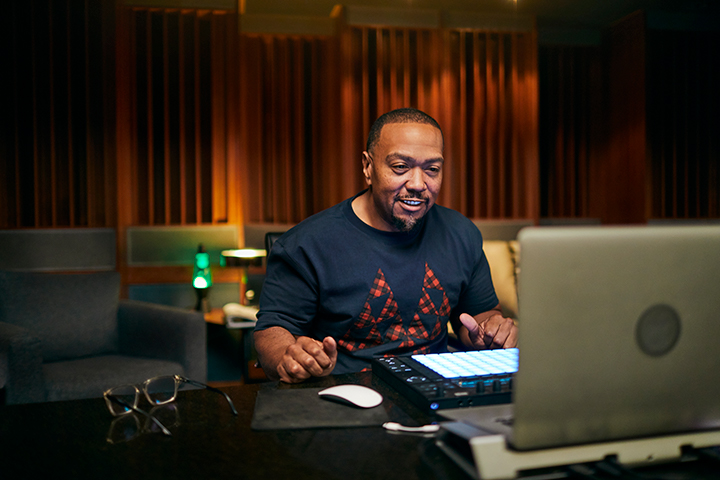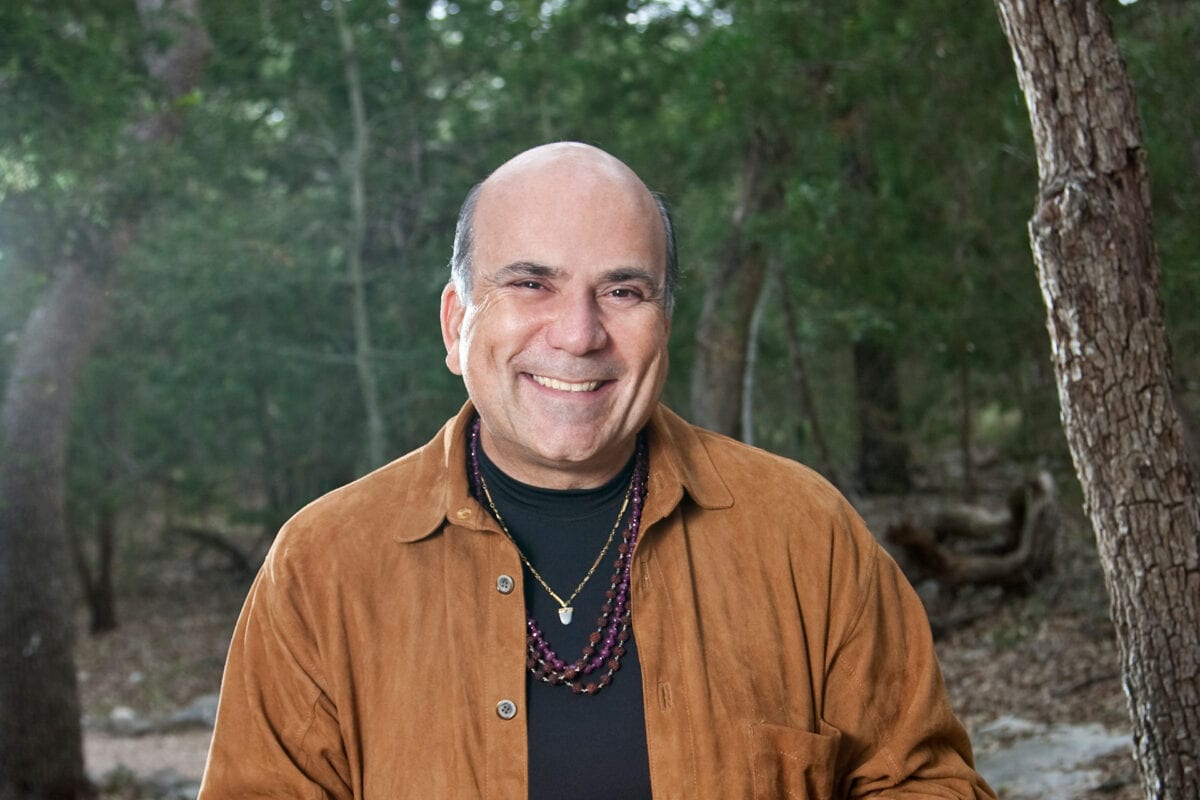After launching a successful career as a TV personality in her native Nigeria as the host of the show Lunch Date, Patricia Bebia Mawa relocated to Canada and essentially started her media career over from scratch. She’s now the executive vice president of the Afroglobal TV channel as well as host and producer of the long-running TV show, Planet Africa, which is broadcast across Canada on OMNI TV and syndicated to Europe and Africa. She is also the executive vice president and editorial director of Afroglobal parent Silvertrust Media, which she co-founded with her husband, Moses. Their media empire includes magazines, TV shows, awards, and an expanding online presence. She spoke with creating her own opportunities in the competitive media landscape.
What can you tell us about the creation and growth of Silvertrust Media?
Silvertrust Media is a publishing, broadcasting, web design, multimedia, photography, events, and special projects company based in Toronto. The company was founded in 1996 in Ottawa by my husband, Moses A. Mawa, on a solid service foundation comprised of quality, integrity, and dexterity. While in Ottawa, the company used to do event and video production, photography, and graphic design services. We also had a lot of diplomatic and government clients.
In 2004, when we moved to Toronto, we streamlined our operations and shifted our focus to broadcasting and publishing. The company has published four regularly scheduled magazines: Excellence (formerly Planet Africa), Destiny, Legacy, and Envision (formerly Diversity Magazine), some of which have been distributed across Canada through Chapters, Indigo, and international newsstands. Silvertrust is the mother company of Planet Africa, which includes a television show on OMNI, a full-colour glossy magazine, and an international awards program.
In 2008 Silvertrust Media introduced the Discover magazine series, which has since released over 20 titles and editions for countries including Discover Zambia, Discover Kenya, Discover Zimbabwe,and Discover Nigeria.
In 2016, Afroglobal Television, a 24-hour global super channel, was launched by Silvertrust Media. The channel is now available on Channel 708 on Rogers cable, 2472 on Bell Fibe, 2701 on Eastlink, and 886 on Telus.
You came to Canada and achieved great success. What has been your experience as not only an entrepreneur, but one who ventured to a new country to create a successful enterprise?
When I came to Canada, I was told by many people that I would never be on TV here, as I had a foreign accent. Having grown up in Nigeria, I never thought that my race or accent were a problem. Everyone looked like me and understood me. Now I was in a place where everything I did was put under a microscope and the diagnosis was not elevating. I had to get used to repeating myself.
When I applied for jobs, I was told that I did not have Canadian experience. My university degree did not count. The first thing I did was pursue further studies at Algonquin College of Science & Technology, where I studied Multimedia.
While at Algonquin, I worked at Walmart as an overnight stocker. As soon as I concluded my program, I created Planet Africa, a web portal to help African Canadian businesses promote their services online. At this time, we had pitched a show to the former CFMT and were turned down three times. We eventually got a “yes” and launched the Planet Africa show in September 2002 on OMNI. Two years after I arrived in Canada, I was back on TV. I got married to Moses the same year and we joined forces to build the business.
It has not been an easy road. As an immigrant, you have to be twice as good to be reckoned with in certain quarters. Advertisers also do not believe in the African-Canadian community. So, getting advertisers and sponsors for our initiatives is always a daunting task. However, we have found creative ways to engage with major corporations. Our commitment to excellence and our resilience have been the bedrock of our success. For us, giving up is not an option. We don’t stop when we get weary, but when the job is done. Canada is a great country and the opportunities that we have as immigrants are unique, as we have the prospect of bringing something different to the table. If you see the challenges as stepping stones rather than stumbling blocks, you can attain great heights.
In your experience, what are some of the key attributes of a successful entrepreneur?
A successful entrepreneur has to be determined, passionate, resilient, positive, and innovative. You must also have a good work ethic. Apart from having these qualities, having a good vision and mapping out a great implementation plan are imperative. When I ask young people in our mentorship program why they want to become entrepreneurs, some of them say, “I want to be my own boss and only work when I want to.” The irony is that when you own your own business, you have to go to work even when you don’t feel like it. What has to be done, has to be done. Deadlines have to be met and you are responsible.
What was the process of creating and launching a full TV network?
Afroglobal Television went on the air on March 10, 2016. We had just about three months to launch the channel or we would lose the cable carriage. Prior to launching the channel, we had produced various programs that were on Vision TV, YES TV, Rogers TV, and OMNI. The experience helped us to create 15 original programs within a short time. We have a team of dedicated and very innovative individuals who know how to do much with little.
The fact that we were already entrenched in the community made it easy for us to engage stakeholders and to promote the channel. The vision is to be a global super channel that informs, empowers, uplifts, and entertains Africa, the diaspora, and the world. The purpose is to serve as a legacy station that transforms the destiny of Africa and the diaspora, as well as the lives of all viewers.
With your success and prominence in the community, have you had the opportunity to mentor any people coming up either within your company or within the wider community?
Mentorship is very important to us. Since 2008, we have run a mentorship program called the Crossover Mentorship Program. The initiative is a six-track program that includes career, academics, leadership, entrepreneurship, life coaching, and the creation of a personal blueprint for success for each participant. The mentoring system is often implemented with various
Partner at the institute, their facilities, as well as online. We recently implemented a province-wide youth-focused initiative called United Voices that culminated with the production of five toolkits located at UnitedVoicesWin.com. The toolkits are to be used by organizations and individuals serving black youth and families, as well as by the media, to promote positive images of black people and to empower youth with strong cultural identities. The
initiative was supported by the Ontario Ministry of Community and Social Services.
Silvertrust Media has arms across many different forms of media, from a TV show to a magazine to an awards show to an entire channel. How difficult is it to run a burgeoning media empire and keep track of all these moving parts?
It requires a lot of planning. We also have a great team. We constantly share the vision with our team, and they understand that they are part of a company that is bringing about social change using the media as a tool. It is interesting that all we do is connected. So, each project complements the other. The biggest challenge is not our capacity or commitment, but getting the corporate world to believe in us enough to prove it with their bucks.
How do you see the media industry changing, not just in Canada but globally?
The media industry has been going through rapid changes and major shifts and disruptions. Digital media has almost replaced print media. The same thing is happening to conventional TV as we know it. Most companies now spend most of their advertising dollars on online platforms. With things like YouTube, anyone can be a content creator and make money online.
It is imperative for media organizations to take advantage of these shifts to stay afloat. Progressive media companies are capitalising on technology to keep up with the disruption. That is our biggest focus right now.
How important is it to you to give back to the community?
Giving back is very important to me. Apart from running a mentorship program, my husband and I have sponsored many young people to attend awards shows to expose them to role models. Many times, we even have to buy them suitable clothes for the event. I have also volunteered my time to help many organizations, especially those that are women- and youth-focused. We have also given scholarships to young people to attend colleges.
You’ve been honoured with several awards during your career. What is it like to receive accolades like the Martin Luther King DreamKEEPERS lifetime achievement award?
It was a humbling experience. Receiving an award in the name of a man that advocated for freedom, equality, and the dignity of all humans regardless of their races and creed reignited my resolve to continue to do what I do with renewed purpose. It is an award that comes with responsibilities. Being a DreamKEEPER means that you not only represent the dream but take action to make sure that the work and sacrifices that have been made for the life that is possible today are not in vain.
Justin Anderson | Contributing Writer




















